How CFM Ratings Affect Rotary Screw Air Compressor Performance
Rotary screw air compressors are widely used across industries, offering a reliable source of compressed air for tools, machinery, and HVAC systems. A key measurement to know when selecting a rotary screw compressor is the CFM rating or Cubic Feet per Minute. This rating shows how much air the compressor can supply.
Knowing about CFM ratings is vital for choosing the right compressor and ensuring its effective operation. In this article, we’ll explain the concept of CFM, its role in compressor performance, and how to determine your specific CFM needs.
What is CFM?
CFM stands for Cubic Feet per Minute and measures how much air a compressor can provide in one minute. This measurement is crucial for selecting the right air compressor.
The importance of CFM lies in matching the compressor's output to the requirements of tools and equipment. A higher CFM rating indicates that more air is available, making it ideal for larger or more demanding tasks, while a lower CFM rating may be good for smaller tools.
In simple terms, CFM indicates the volume of air delivered by the compressor each minute, ensuring the right compressor is chosen for the job.
The Role of CFM in Rotary Screw Air Compressors
Rotary screw air compressors are commonly used in many industries because they provide a continuous supply of compressed air. They work by using two interlocking screws to compress air, allowing for a steady flow without pressure fluctuations. This steady operation is essential for tasks requiring consistent tools and machinery air supply.
CFM, or Cubic Feet per Minute, measures how much air the compressor can deliver at a specific pressure. For industrial applications needing more compressed air, it’s important to choose a rotary screw air compressor with a higher CFM rating. A higher CFM means the compressor can supply more air, making it ideal for larger tools or running multiple machines simultaneously.
CFM should be considered alongside other important metrics like PSI (Pounds per Square Inch) and horsepower when selecting an air compressor. PSI indicates the pressure of the air, while horsepower measures the motor's power output. Together with CFM, these metrics help to understand the compressor's overall capabilities.
Factors Affecting CFM Ratings
Several factors can influence the CFM output of a rotary screw air compressor, which is essential for its performance. Understanding these factors helps ensure the compressor operates efficiently.
-
Compressor Design and Technology
The design and technology of the compressor significantly impact its CFM rating. Advanced designs and efficient motor systems can lead to higher CFM output.
-
Motor Power
More powerful motors generally produce higher CFM rates. A compressor with a stronger motor can compress and deliver more air, making it suitable for demanding tasks.
-
Operating Conditions
CFM output is affected by temperature and pressure. Typically, CFM decreases as operating pressure increases. Higher temperatures can also reduce compressor efficiency and CFM.
-
Altitude
CFM output can decrease at higher altitudes due to lower air density. Thinner air means the compressor must work harder to deliver the same air.
-
Maintenance and Wear Over Time
Regular maintenance stabilises CFM ratings. Over time, wear and tear on compressor parts can reduce efficiency and CFM output. Proper maintenance helps maintain performance.
Choosing the Right Rotary Screw Air Compressor
When selecting a rotary screw air compressor, consider the following key points based on CFM ratings to ensure it meets your needs:
-
Matching CFM to Tool and Equipment Needs
Ensure the compressor's CFM rating matches the air requirements of your tools and equipment. Each tool has specific air demands, so choosing a compressor with enough CFM is essential for optimal performance.
-
Importance of Future Scalability
Think about future needs when selecting a compressor. If business requirements may grow, choosing a compressor with a higher CFM rating allows for additional tools or equipment without replacing the compressor later.
-
Understanding Duty Cycle and Load Requirements
Know how often the compressor will run (duty cycle) and the load requirements. A higher duty cycle means the compressor will be used more frequently, so it must be able to handle continuous use without overheating. Understanding load requirements helps ensure the compressor can meet specific application demands.
Conclusion
Understanding CFM ratings is important when choosing a rotary screw air compressor for your needs. These compressors play a crucial role in various industrial applications by providing a continuous compressed air supply. Factors such as CFM output, PSI, motor power, and operating conditions should be considered to make an informed choice and ensure the efficient operation of tools and machinery.
Match the CFM rating to the air requirements of your tools and equipment, consider future scalability for business growth, and understand the duty cycle and load requirements. This will ensure optimal performance. With this knowledge, you can confidently select a rotary screw air compressor that meets your current and future demands, maximising productivity and efficiency in your operations.
Get Quotes for Your Ideal Air Compressor Today!
Find the perfect rotary screw air compressor! Visit IndustrySearch to compare quotes from top suppliers. With a wide range of options for various applications, it's easy to find the right compressor that meets specific requirements and budget. Click the link below to get started and enhance operational efficiency!
Get Your Air Compressor Quotes Now!
FAQ:
-
How do I choose the right rotary screw air compressor?
Consider the CFM rating, make sure it matches your tools' needs, think about future growth, and understand how often you'll use it.
-
Can a high CFM compressor be too powerful?
Yes, a compressor with a much higher CFM than needed can lead to inefficiencies and higher costs. It's best to match it to your tools.
-
How are CFM and PSI related?
CFM measures the volume of air, while PSI measures air pressure. Both are important when selecting a compressor, so consider them together.

.jpeg)

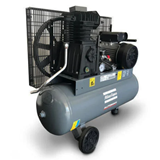
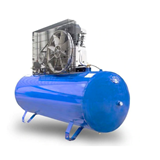
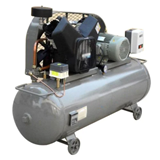
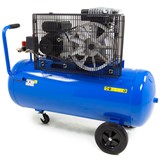

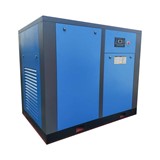

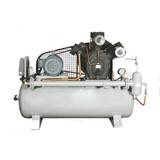
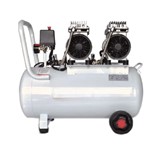

-205x205.jpeg)